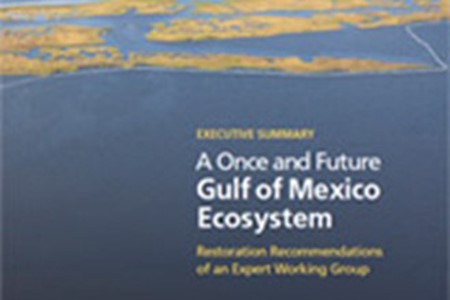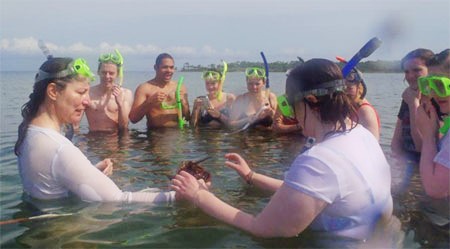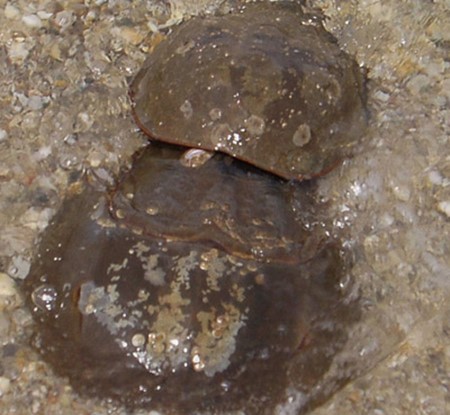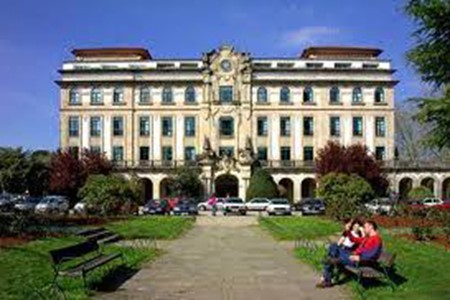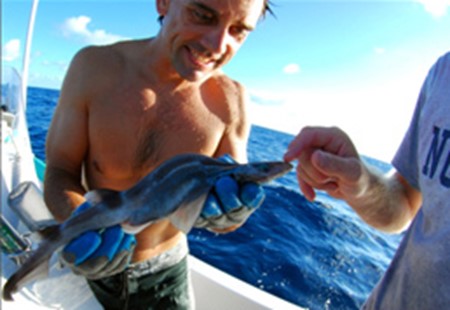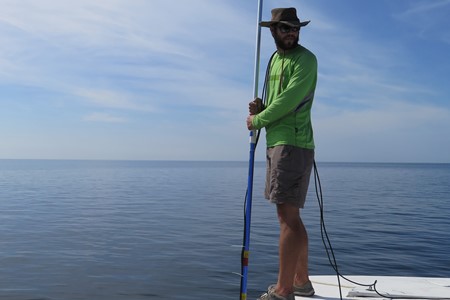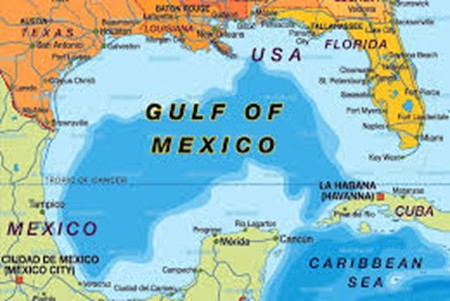Dr. Felicia Coleman is a co-author on a new report released by the Pew Charitable Trust, A Once and Future Gulf of Mexico Ecosystem in which the expert working group makes recommendations for recovering Gulf resources and restoring the natural system. Recognizing that the Deepwater Horizon disaster of April 2010 was just the most visible, recent problem threatening the health of the Gulf of Mexico ecosystem, the authors recommend going beyond the traditional restoration approach that targets specific habitats or species damaged by the oil to focus on the Gulf of Mexico as a whole to have it truly recover and thrive in an unpredictable future.
Alex Chequer Joins CML as FSU Diving Safety Officer
Please welcome Alex Chequer to the FSU Coastal and Marine Laboratory as the new FSU Diving Safety Officer. Alex arrived recently with his wife, Catherine, and son Ryan, after having served for years as the Diving Safety Officer for the Bermuda Institute of Ocean Sciences.

